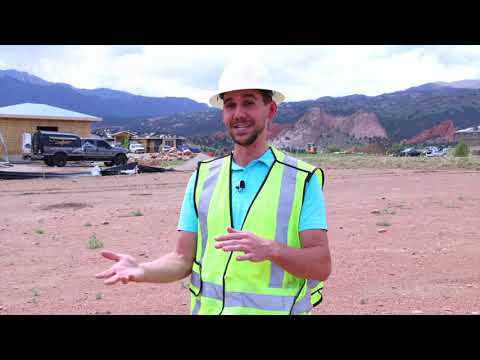High-Paying Geotechnical Engineer Job: Description and Salary

Geotechnical Engineer Job Description Template
Geotechnical Engineer Job Description A geotechnical engineer is a professional who specializes in studying the behavior and properties of soil, rocks, and other earth materials. They play a crucial role in construction and infrastructure projects by providing expertise in assessing the stability, strength, and suitability of the ground for various engineering purposes. One of the key responsibilities of a geotechnical engineer is to conduct thorough site investigations. They collect soil and rock samples, analyze them in laboratories, and interpret the data to evaluate the geological conditions of the project site. This information helps in determining the appropriate foundation design, slope stability, and potential risks such as landslides or earthquakes. Geotechnical engineers also design and supervise the construction of foundations, retaining walls, embankments, and other structures. They collaborate with architects, structural engineers, and construction teams to ensure that the design specifications are met and that the structures are built safely and efficiently. They may also provide recommendations for ground improvement techniques to enhance the stability of the soil and mitigate potential risks. Another important aspect of their job is to monitor the performance of the structures during and after construction. They assess the impact of the structures on the surrounding environment and make necessary adjustments if required. They also investigate any failures or damages and provide solutions to rectify the issues. Overall, geotechnical engineers play a critical role in ensuring the safety and durability of infrastructure projects. Their expertise helps in minimizing risks, optimizing designs, and ensuring the long-term stability of structures. They need to possess strong analytical, problem-solving, and communication skills to effectively carry out their responsibilities.Geotechnical Engineer Responsibilities
Geotechnical Engineer Requirements
How Much Does A Geotechnical Engineer Make?
Geotechnical Engineer Salary
| Experience Level | Salary Range |
|---|---|
| Entry-level | $55,000 – $75,000 |
| Mid-career | $75,000 – $100,000 |
| Experienced | $100,000 – $150,000 |
| Senior | $150,000 – $200,000 |
A Geotechnical Engineer’s salary varies based on their experience level. Entry-level engineers can expect to earn between $55,000 to $75,000 annually. As they progress in their career, mid-career engineers can earn between $75,000 to $100,000. Experienced geotechnical engineers can earn higher salaries ranging from $100,000 to $150,000. In senior positions, top-level geotechnical engineers can earn salaries ranging from $150,000 to $200,000 or even more. These salaries may vary depending on factors such as location, company size, and industry demand.
Geotechnical Engineer Salaries by Country
Top Paying Countries for Geotechnical Engineer
| Country | Average Salary (USD) |
|---|---|
| United States | 100,000 |
| Switzerland | 95,000 |
| Australia | 90,000 |
| Norway | 85,000 |
| Canada | 80,000 |
A geotechnical engineer specializes in studying the behavior and properties of earth materials to design and construct structures. The salary of geotechnical engineers varies by country, with the United States offering the highest average salary of $100,000. Switzerland follows closely with an average salary of $95,000, while Australia offers an average salary of $90,000. Norway and Canada also provide competitive salaries in the range of $85,000 to $80,000 respectively. These top paying countries attract geotechnical engineers with their lucrative compensation packages, reflecting the importance of their expertise in various construction and infrastructure projects.
A video on the topic Geotechnical Engineer
Video Source : RMG Engineers + ArchitectsInterview Questions for Geotechnical Engineer
1. What does a geotechnical engineer do?
A geotechnical engineer is responsible for studying the behavior and properties of soil, rock, and underground water in order to assess the stability and viability of construction projects. They provide recommendations for foundation design, slope stability, and earthwork.
2. What are the key skills required to be a successful geotechnical engineer?
Some key skills required for a successful geotechnical engineer include a strong understanding of soil mechanics, geology, and engineering principles. They should also possess excellent analytical and problem-solving abilities, good communication skills, and be able to use various geotechnical testing equipment and software.
3. What are the common challenges faced by geotechnical engineers?
Some common challenges faced by geotechnical engineers include dealing with unpredictable soil conditions, managing potential risks such as landslides and soil liquefaction, and ensuring the stability and integrity of structures in various environmental conditions. They also need to consider the long-term effects of construction on the surrounding environment.
4. How do geotechnical engineers assess soil stability?
Geotechnical engineers assess soil stability by conducting site investigations and collecting soil samples for laboratory testing. They analyze the soil’s physical and mechanical properties, such as density, moisture content, shear strength, and permeability. They also consider factors like slope angle, groundwater conditions, and loading conditions to evaluate the stability of the soil.
5. What is the role of geotechnical engineering in construction projects?
Geotechnical engineering plays a crucial role in construction projects by ensuring the safety and stability of structures. Geotechnical engineers provide recommendations for foundation design, site grading, earthwork, and retaining structures. They assess the suitability of the soil for construction, identify potential geotechnical hazards, and propose mitigation measures to minimize risks.
6. How do geotechnical engineers contribute to environmental sustainability?
Geotechnical engineers contribute to environmental sustainability by considering the long-term impacts of construction on the environment. They assess the suitability of the site for construction, taking into account factors like soil erosion, groundwater contamination, and the preservation of natural habitats. They also recommend techniques for minimizing the environmental footprint of construction projects.
7. What are some common geotechnical testing methods?
Some common geotechnical testing methods include standard penetration tests (SPT), cone penetration tests (CPT), direct shear tests, triaxial tests, and consolidation tests. These tests help determine the soil’s strength, stiffness, permeability, and compressibility, which are crucial for engineering design and construction.
8. How do geotechnical engineers assess the risk of landslides?
Geotechnical engineers assess the risk of landslides by studying the geological and geomorphological characteristics of the area, analyzing the slope stability, and monitoring any signs of slope movement. They also consider factors like rainfall patterns, vegetation cover, and historical landslide data to evaluate the likelihood and potential impact of landslides.
9. How does geotechnical engineering contribute to mining projects?
Geotechnical engineering plays a vital role in mining projects by assessing the stability of underground excavations and providing recommendations for support systems. Geotechnical engineers evaluate the rock mass quality, ground conditions, and potential geological hazards to ensure the safety of mining operations and minimize the risk of collapses or accidents.
10. What are the future prospects for geotechnical engineering?
The future prospects for geotechnical engineering are promising, as the demand for infrastructure development and construction projects continues to grow. With the increasing focus on sustainable and resilient construction practices, geotechnical engineers will play a crucial role in ensuring the safety, stability, and environmental sustainability of future infrastructure projects.






